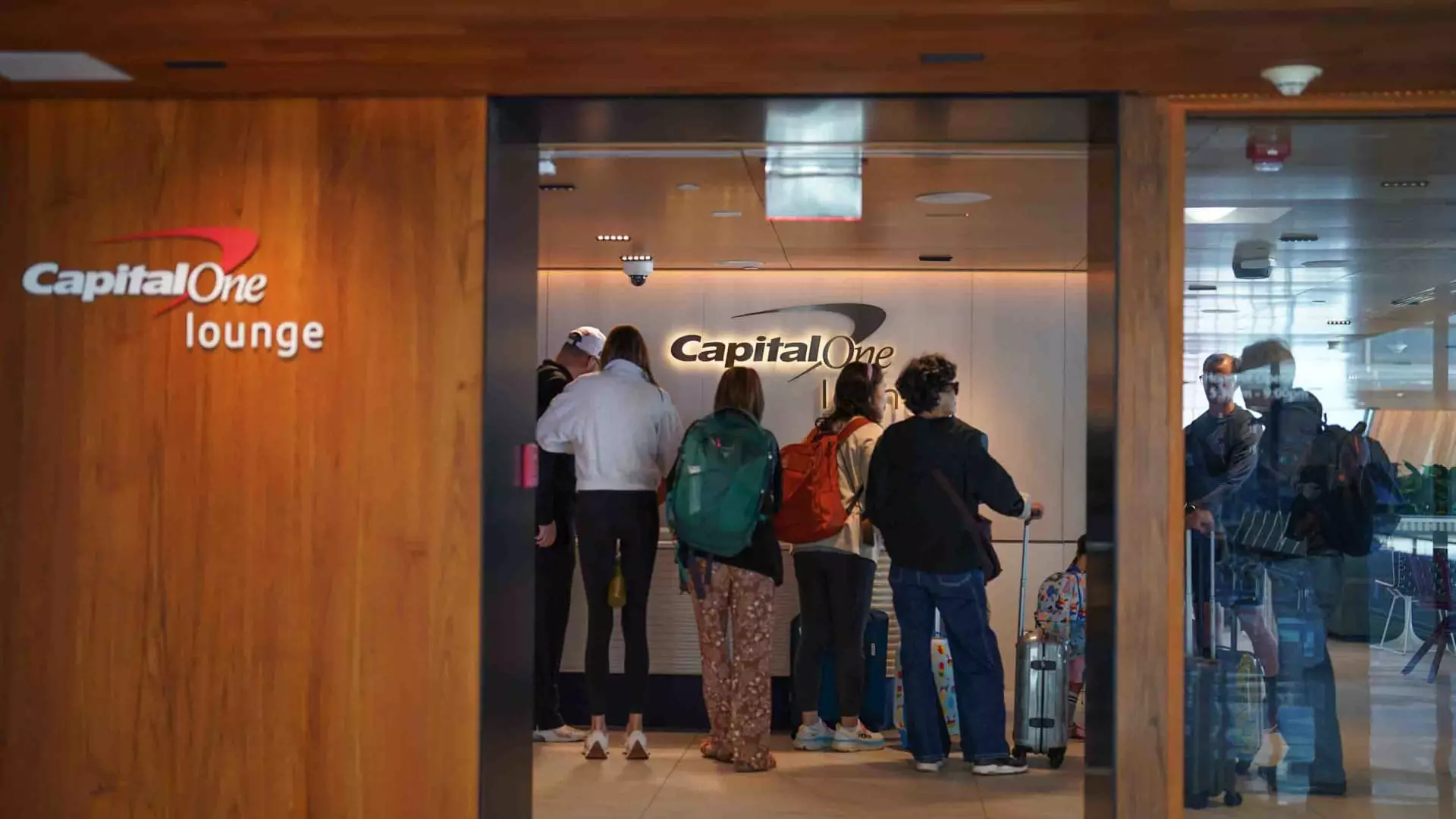As air travel evolves, so too does the allure of airport lounges—a sanctuary for weary travelers seeking respite from the bustle of terminals. In recent years, these exclusive havens have transformed from hidden gems into must-have amenities granted by premium credit cards. They promise an oasis of comfort, but now, with increasing demand, the privilege of accessing these lounges is becoming unaffordable for average families. In a bid to restore balance amid the chaos, Capital One has decided to rein in the growing popularity of its lounges by instituting inconvenient and costly new restrictions that could alienate the very customers who once flocked to its cards for premium benefits.
The Shifting Landscape of Access
Capital One’s recent policy changes are alarming not only for their monetary implications but also for what they reveal about the changing relationship between consumers and financial institutions. By introducing steep fees for guest access and second cardholders—$125 annually just to keep a family member in the fold—Capital One has effectively placed a price tag on what used to be included as a perk in credit card memberships. This transformation speaks volumes about the priorities of banks: maximizing profit often comes at the expense of customer loyalty.
The airline industry is notorious for its convoluted and often exorbitant pricing structures, and as Capital One imitates this trend, it risks further disenfranchising those it originally aimed to serve. Requiring primary cardholders to spend a staggering $75,000 annually to access complimentary guest privileges echoes the practices of other card issuers, such as American Express. It suggests a broad shift towards a system where exclusivity trumps accessibility, pushing ordinary travelers out of the lounge experience and relegating them to the standard terminal chaos.
A Greater Problem with Exclusivity
The fact is, these lounges have become victims of their own success. Overcrowding—now a common issue—has been exacerbated by the surge in lounge popularity. With the introduction of more premium cards allowing access to these spaces, we are witnessing a shift that favors the affluent over the average traveler. People who once enjoyed the escapism of a quiet, clean lounge now find themselves navigating long lines and full seating areas, rendering the benefit nearly moot. The constant quest for a comfortable atmosphere while traveling has morphed into a struggle to simply find an available seat.
The mainstreaming of airport lounges is not merely a logistical issue; it’s a cultural concern. The privilege of relaxation and comfort, once a luxury, is becoming increasingly gated by economic barriers and spending thresholds. Capital One representatives cite a desire to maintain a “great airport lounge experience” as their rationale, but this pursuit of quality at the expense of access raises questions about genuine customer care.
Wider Implications for Travel and Consumer Relations
This trend does not simply affect credit cardholders; it reflects a broader shift in consumer expectations and behavior in travel. When financial incentives diminish access to amenities that once felt inclusive, it fosters resentment among middle-class travelers who seek quality experiences but feel systematically disenfranchised by corporate strategies prioritizing exclusivity. In an era when travel should be a time of relaxation and joy, the heavy-handed policies present a stark contradiction to that purpose.
Moreover, the airline industry’s escalating costs for lounge access are symptomatic of a larger pattern emerging across the travel ecosystem. Delta’s and American Airlines’ substantial policy shifts regarding lounge access, including limits on visits, can be viewed as proactive measures against the mounting pressure of overcrowding; however, they also signify a troubling inclination to prioritize profits over customer satisfaction. The result is a travel environment that increasingly feels transactional, where loyalty and value have been replaced with barriers and fees.
In a world where air travel already involves a series of financial burdens—fuel prices, baggage fees, and rising ticket costs—families shouldn’t have to navigate another obstacle course to enjoy a peaceful moment in an airport. The evolving landscape of lounge access signifies a pivotal change, igniting a crucial conversation about corporate practices, consumer rights, and the fundamental experiences that should remain unfettered by greed.

